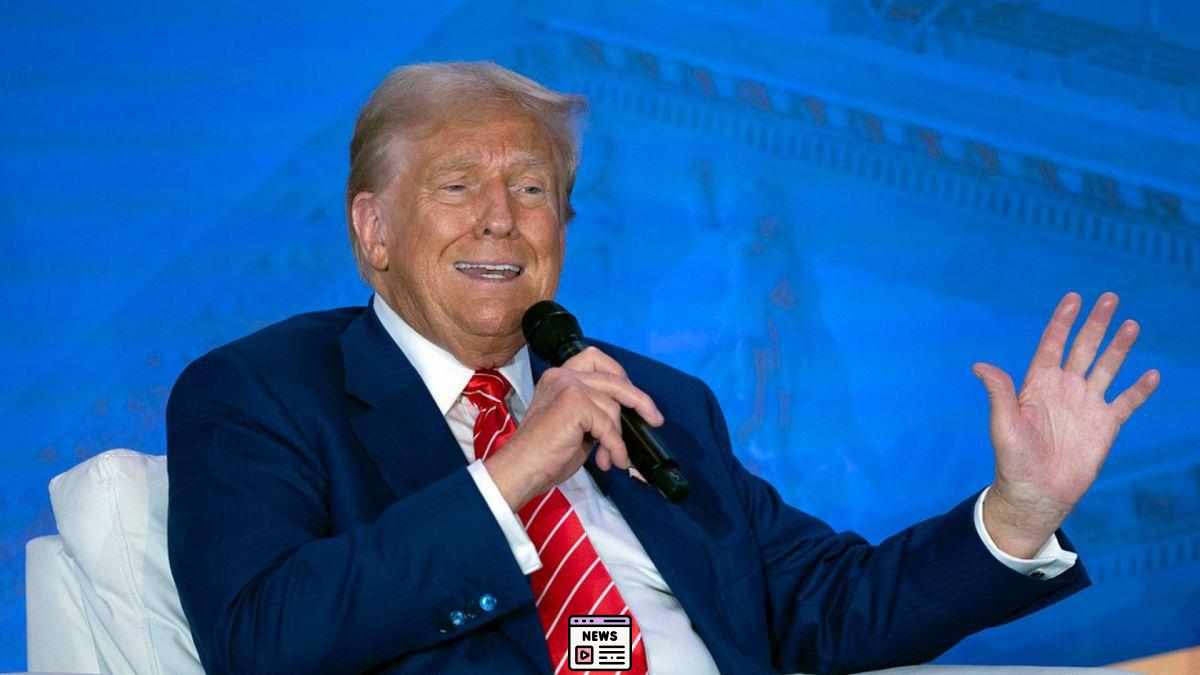Updated on: October 7, 2024 7:51 pm GMT
US Right-Wing Influencers Claim Deception in Alleged Russian Plot
In a developing story surrounding the integrity of the upcoming 2024 US elections, several conservative influencers from the United States have declared themselves victims of an alleged Russian scheme. This follows an indictment accusing Russian state broadcaster RT of orchestrating a plot to manipulate US public opinion through social media influencers.
Details of the Allegations
The indictment, released recently, accuses RT of giving a Tennessee-based firm, identified as Tenet Media, $10 million to create and disseminate content infused with covert Russian government narratives aimed at US audiences. Specifically, these influencers are reportedly unaware participants who were utilized to spread messages that align with Russian interests, particularly in relation to geopolitical tensions such as the ongoing conflict in Ukraine.
Tenet Media, founded in 2022 by conservative Canadian YouTuber Lauren Chen and her husband, Liam Donovan, describes itself as a network that engages in ‘heterodox commentary’ on various political and cultural issues affecting the West. While directly not named in the indictment, Tenet Media has emerged as a focal point due to its involvement with prominent influencers including Tim Pool, David Rubin, and Benny Johnson, all of whom have since voiced their concerns about their alleged unwitting involvement.
Influencers Speak Out
In the wake of the allegations, several key figures from Tenet Media took to social media to assert that they were misled if the claims are substantiated. Tim Pool, with a significant following of over 2 million on X (formerly Twitter), expressed that he would be considered a “victim” if the allegations prove true. He emphasized on his platform, “I cannot speak for anyone else… but we were deceived.”
Similarly, Benny Johnson, who boasts 2.7 million followers, voiced his distress over the accusations. He stated that he trusted the contractual relationship established with Tenet Media and believed they maintained editorial independence over their content. David Rubin, another influencer with a strong online presence, claimed to be unaware of any fraudulent activities related to the alleged scheme, reinforcing the narrative that these personalities have not colluded knowingly with the alleged Russian plot.
The Indictment’s Overview
The detailed indictment describes how videos generated by Tenet Media echoed right-wing ideologies on topics like immigration, gender, and economic policies. Notably, the indictment specifies that RT’s operational staff, including Kostiantyn Kalashnikov and Elena Afanasyeva, corrected and edited the content to better serve Russian interests, weaving their messaging into the influencers’ narratives. US Attorney General Merrick Garland highlighted that the authentic nature of these influences was concealed from those involved.
Financial Dynamics and Recruitment Methods
According to court documents, the financial arrangements involved significant sums, with some influencers reportedly earning hundreds of thousands of dollars monthly. The indictment describes negotiations where some were offered millions for participation, with one individual even requesting $5 million to consider involvement. As a dramatic element, the Russian operatives allegedly created a fictitious Hungarian investor to facilitate transactions and further mask their intentions.
- Four influencers were offered $400,000 monthly to produce four videos.
- Another commentator was purportedly promised $100,000 per video.
These deals highlight a sophisticated approach to recruit influential figures in the US, leveraging platforms to sidestep traditional media scrutiny and enhance Russian propaganda’s reach. Furthermore, the indictment suggests that Tenet Media’s founders had their suspicions about the legitimacy of their funding, indicating that the potential manipulation was not entirely concealed.
RT’s Response to the Allegations
RT has quickly dismissed the allegations as outdated and politically motivated, with its press team making a remark insinuating that the charges reflect a bygone era of political discourse in the United States. Moscow, on its part, denounces the indictment as part of a broader “information campaign” aimed at addressing the upcoming elections.
Maria Zakharova, spokesperson for the Russian Ministry of Foreign Affairs, labeled the US actions as a primitive means to influence voters. She cryptically noted that a response would be imminent, suggesting that retaliatory measures would be taken in response to the sanctions imposed on RT officials—including editor-in-chief Margarita Simonyan.
Implications for US-Russia Relations and Media Integrity
This unfolding narrative shines a light on the ethical quandaries surrounding social media influence, with serious implications for the future of US-Russia relations. As both nations prepare for a contentious presidential election cycle, the allegations serve to underline the complexities of foreign influence within domestic political landscapes. The Justice Department’s actions, coupled with the vehement denials and claims of victimhood from US influencers, highlight the often murky waters of international influence in media.
Furthermore, as traditional media outlets gradually retreat from the Russian landscape post-invasion of Ukraine, the US government’s focus on media networks and their affiliations indicates a determination to combat foreign interference at all levels, even as it faces backlash from Moscow.
Subsequent Developments Awaited
As investigations proceed, both the American public and international observers continue to grapple with the ramifications of these developments. Influencers implicated in the allegations find themselves in a precarious position, attempting to clarify their roles while asserting autonomy in content creation.
There’s a chance we might learn more as investigations continue. This is an important time for understanding how media, influence, and international relations connect in our digital world. The 2024 elections are turning into not just a fight for votes in our country, but also a key part of the global battle for control and trust in information.
